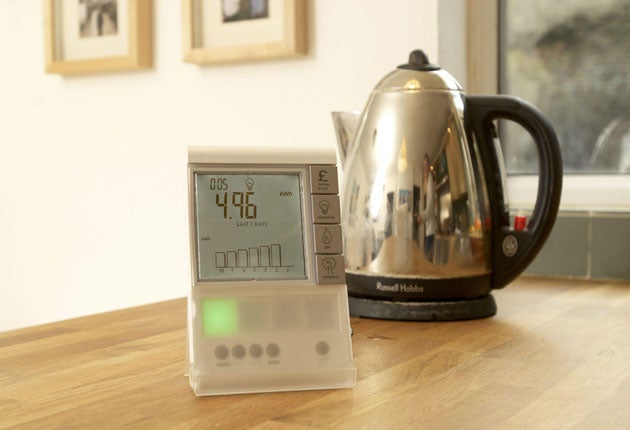Government's smart energy meter initiative threatens to be 'costly failure,' claim MPs
Committee calls for 'significant and immediate changes to the present policy' following delays

Your support helps us to tell the story
From reproductive rights to climate change to Big Tech, The Independent is on the ground when the story is developing. Whether it's investigating the financials of Elon Musk's pro-Trump PAC or producing our latest documentary, 'The A Word', which shines a light on the American women fighting for reproductive rights, we know how important it is to parse out the facts from the messaging.
At such a critical moment in US history, we need reporters on the ground. Your donation allows us to keep sending journalists to speak to both sides of the story.
The Independent is trusted by Americans across the entire political spectrum. And unlike many other quality news outlets, we choose not to lock Americans out of our reporting and analysis with paywalls. We believe quality journalism should be available to everyone, paid for by those who can afford it.
Your support makes all the difference.A Government initiative to provide smart energy meters for every house and business in the UK is at risk of being a “costly failure”, MPs have warned.
The Energy and Climate Change Committee criticised the plan which could see consumers foot the £11bn bill required to install the meters nationwide. They also voiced concerns over delays to the project and questioned whether the contract holder Data Communications Company (DCC), a Capita subsidiary, was “capable of delivering what it requires”.
The smart meters, described as the next generation of gas and electricity readers, provide consumers with real time information on their energy use in pounds and pence. Experts believe they will lead to reduced emissions and lower bills as families are able to monitor their consumption, rather than rely on estimated billing.
But the target of a nationwide roll-out by 2020 has been labelled unlikely, partly as a result of DCC proposing to push the start date to 2016.
In the report, the Committee said: “Without significant and immediate changes to the present policy, the programme runs the risk of falling far short of expectations.”
Technical difficulties have also occurred concerning houses of multiple occupancy and tall buildings. According to the report, smart meters would be unable to work in buildings where multiple gas and electricity meters were already in places because they could not “communicate” with each other.
Tim Yeo, Chair of the Committee, said: “Time is running out on the Government’s plan to install smart meters in each of the UK’s 30 million homes and businesses by 2020. Smart meters could generate more than £17bn in energy savings for the country yet a series of technical and other issues have resulted in delays to the planned roll-out.
“While some progress has been made… it’s not enough. The energy industry told us it needs the Government to enable industry-wide solutions, rather than the less efficient alternative of letting each energy supplier develop its own solution.
“The Government is at a crossroads. It can continue with its current approach and risk embarrassment through public disengagement on a flagship energy policy, or it can grip the reins and steer the energy industry along a more successful path.”
In response to the criticisms, a spokesperson from Capita said: “During the course of the programme a number of significant changes have emerged in finalising the technical requirements and specifications on which DCC’s solution depends. So it is right and proper that DCC should review its plan.”
“DCC is focused on securing a robust and resilient plan that has the confidence of industry. It is these factors that will ensure consumers receive the best possible experience so the benefits of smart meters for British households, such as the platform for smart grids and faster switching between suppliers, are realised.”
Join our commenting forum
Join thought-provoking conversations, follow other Independent readers and see their replies
Comments